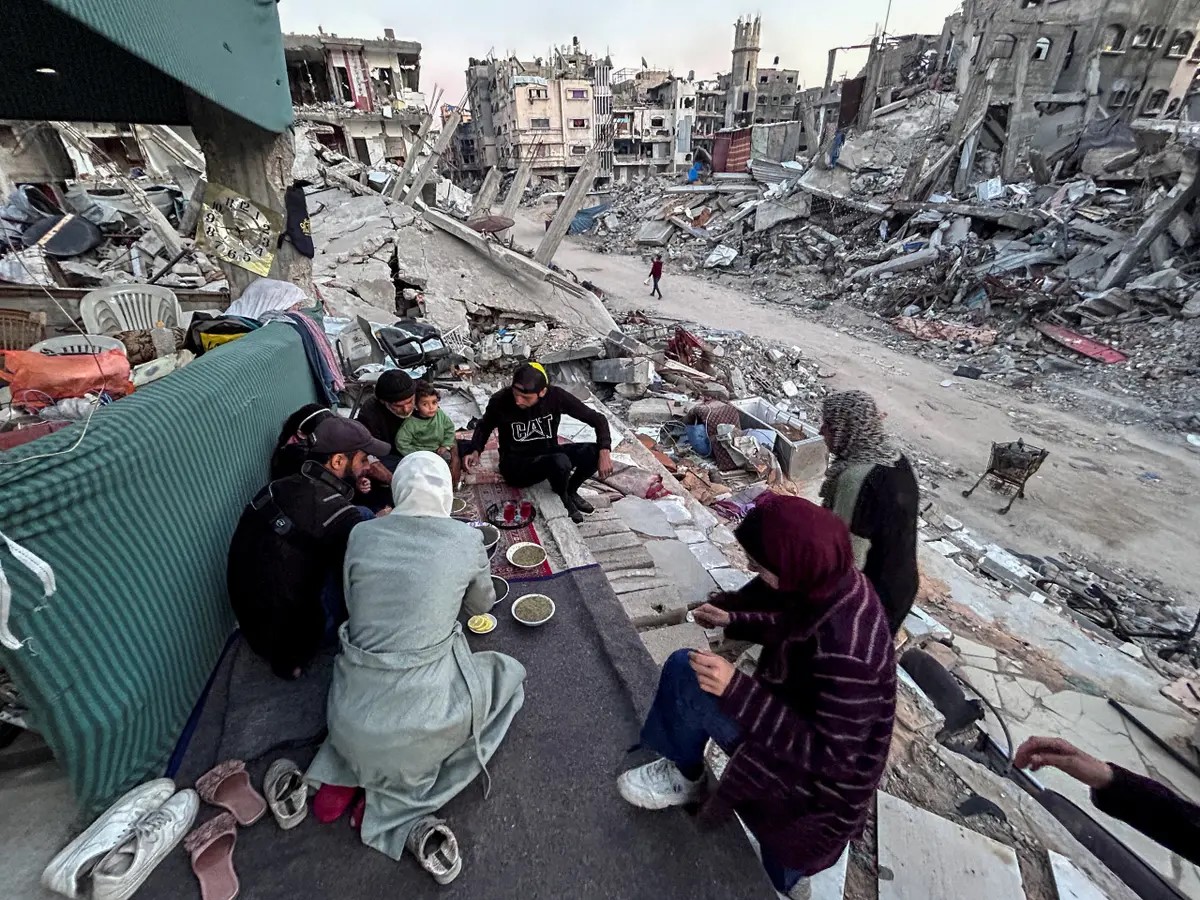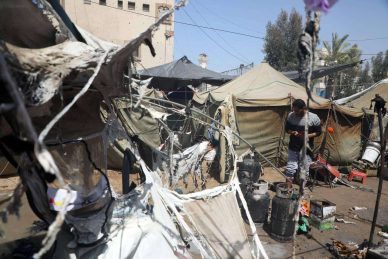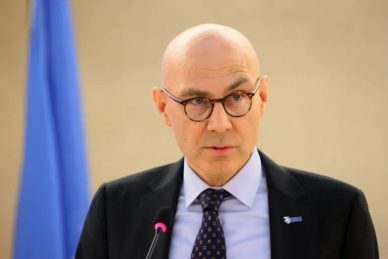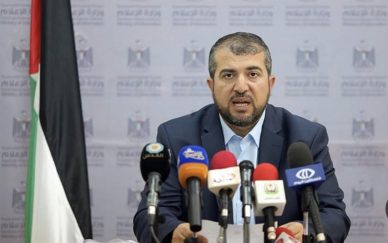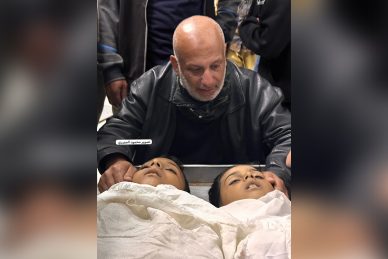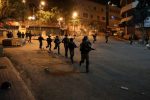GAZA, (PIC)
While Muslims around the world celebrate the first Friday of Ramadan with lavish feasts and tables filled with an array of meats and delicious dishes, the people of Gaza are once again forced to endure the “canned food nightmare.” With the occupation shutting down border crossings and tightening the siege, starvation has become a tool of negotiation and a means to force displacement.
On the first Friday of Ramadan, Gaza’s markets were completely devoid of meat. The prices of vegetables soared as their availability declined and quality worsened. Alongside them, the costs of essential goods such as oil, sugar, and legumes also spiked.
A renewed nightmare
Umm Muhannad spent hours debating with her husband and children over what to prepare for the first Friday of Ramadan. She had hoped for a meal of maftoul (Palestinian couscous) with turkey meat, which had briefly been available before the border crossings were shut again. But that now seems like a distant dream.
“We were hopeful that this Ramadan would be different, that we could eat decent meals. But that hope vanished when the occupation closed the crossings, leaving markets empty and prices soaring,” said Umm Muhannad, who ultimately resorted to preparing a meal using canned beans from a food aid package she had received from the World Food Program.
Her children expressed their frustration with the meal, which has become a symbol of war and deprivation. They had been eating the same canned food for months throughout the war, and now it was once again their only option. The occupation continues to use starvation as a pressure tactic against Palestinian negotiators and the resistance by targeting the civilian population.
“We’re sick of canned beans! We deserve to eat like normal people. Everywhere else in the world, people enjoy delicious meals during Ramadan and post their feasts online. We’ve been eating canned food for two years—most of it unhealthy and barely edible,” said Muhammad, one of Umm Muhannad’s children, expressing his disappointment over the family’s limited choices.
Umm Muhannad and her children called on the world to pressure the occupation into implementing the second phase of the ceasefire agreement, reopening the crossings, and allowing food, water, fuel, and electricity supplies to enter Gaza. They also pleaded for an end to the war, which has left Gaza wounded and grieving.
A form of genocide
The Hamas Movement condemned the occupation’s decision to keep Gaza’s border crossings closed for the 8th consecutive day, preventing the entry of humanitarian aid. The group described it as part of an ongoing campaign of genocide against the Palestinian people in Gaza and a war crime that demands international intervention.
Hamas spokesperson Abdul Latif al-Qanou’ stated in a press release a couple of days ago that the occupation’s policy of starvation and collective punishment constitutes a blatant violation of international and humanitarian law and should be met with accountability.
Al-Qanou’ called on the international community and human rights organizations to force the occupation to reopen the crossings, allow humanitarian and medical aid to enter, and alleviate the suffering of the people in Gaza.
Even before the war, 80% of Gaza’s population depended on humanitarian aid for survival. According to UN agencies and Gaza’s Ministry of Social Development, the suspension of aid under current conditions puts more than 289,824 children and 139,764 elderly individuals at risk of dying from starvation and cold due to the lack of blankets and heating supplies.
Gaza’s Government Media Office reported that the blockade on shelter supplies means that around 1.5 million people remain homeless after their houses were destroyed. This comes amid freezing temperatures and unbearable living conditions, where even the most basic necessities—water, food, and electricity—are scarce.
The Office also warned that the ban on heavy machinery has left over 55 million tons of rubble uncleared, trapping more than 10,000 missing individuals beneath the debris and obstructing roads, creating a severe health and environmental crisis.
A war crime
Legal expert Salah Abdul Ati, head of the International Commission to Support Palestinian Rights (HICHR), described the suspension of aid deliveries as a war crime and a crime against humanity, exacerbating the genocide against the Palestinian people.
In a series of social media posts, Abdul Ati highlighted that 80% of Gaza’s population relies on humanitarian assistance to survive. The continued blockade will only deepen the crisis of hunger and poverty.
He further explained that these punitive measures are part of a collective punishment strategy aimed at economically and socially strangling Gaza, worsening an already catastrophic situation—particularly during Ramadan and amid freezing temperatures.
The blockade on aid and the closure of border crossings have also caused prices to skyrocket. The ban on fuel imports threatens to collapse essential services and trigger outbreaks of disease and epidemics.
The United Nations Relief and Works Agency (UNRWA) also warned that the continued prevention of aid deliveries endangers thousands of war-stricken families. In an interview, Inas Hamdan, director of UNRWA’s media office in Gaza, emphasized that the majority of Gaza’s population is heavily dependent on humanitarian aid.
“We are talking about the basic necessities of life—food, water, medicine, electricity, and fuel. There is no way to deliver life-saving humanitarian services effectively without the continuous entry of sufficient aid supplies,” she stressed.
With the occupation once again weaponizing starvation as part of its ongoing war on Gaza, the humanitarian situation has reached dire levels. The suffering of war continues, as the occupation hopes to achieve through deprivation what it failed to accomplish in 15 months of military aggression.
But the resistance and the people standing firmly behind it send a clear message: Gaza will endure hunger, but it will not surrender.

